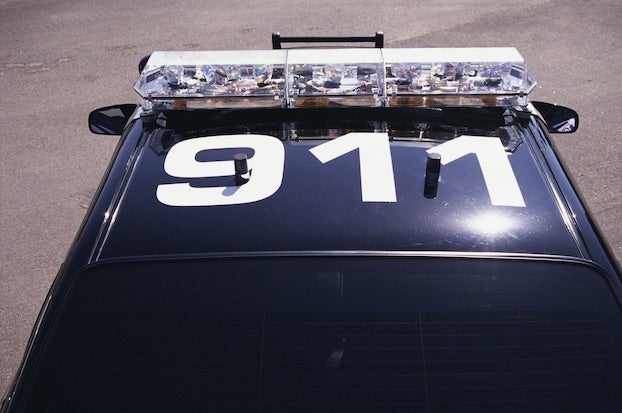Honoré: Chemical plants in hurricane zone a security risk
Published 1:11 pm Monday, July 17, 2023

- “They suck our natural resources to ship it overseas, and they make big money on it,” Gen. Russel Honoré said of LNG plants during a previous stop in Lake Charles. (Donna Price / American Press)
Hurricanes could get stronger and more frequent, according to climate models. Retired U.S. Army Lt. Gen. Russel Honoré recently expressed concerns about how that type of severe weather could impact petroleum refining, LNG and chemical plants, and the environmental risk for nearby residents, urging all to be prepared and “if you get an order to evacuate, follow it.”
Honoré’s 37-year military career included leading the Katrina Joint Task Force in 2005. Now he’s fighting for a different cause as head of GreenARMY, raising awareness of the link between pollution and climate change and how some Louisiana industry is located within communities made up of marginalized citizens.
“I don’t want to see these plants close,” he said. “I want to put gasoline in my car and go places. I like stuff. That’s not the point of GreenARMY. Our motto is to find a solution for pollution.”
Air pollution can contain greenhouse gasses and carbon dioxide, which could accelerate global warming, which attributes to stronger and more frequent hurricanes. Honoré is also sounding an alarm on how pollution could affect soil, air and water in the event that plants are damaged by severe weather.
Earlier this week, The Hill printed an op-ed piece from Honoré.
The general referred to an Advocate news story by Tristan Baurick and Jeff Adelson, “New analysis shows 740 chemical sites in Louisiana are at risk from storms. Are they ready?”
“Federal, state parish regulators don’t require facilities to take specific precautions to ensure floodwaters and winds will not allow chemicals to escape,” Honoré said.
He’d like to see changes.
“Can they withstand another Laura and Delta,” Honoré asked. “Can those LNG plants on the coast withstand the 12-foot tidal wave predicted with Laura that didn’t happen? Most of our plants weren’t built to withstand 144-mile-per-hour winds.”
Lake Area Industry Alliance Executive Director Jim Rock said, “Industry is very aware of the risks that high winds, flooding, lightning and tornadoes can present to facilities, the environment and community.”
Industries in Southwest Louisiana take responsibility by planning and training year in and year out to prepare for extreme weather and apply the lessons from previous storms to prepare for future storms, according to Rock. Plans are activated in close coordination with local, state and national authorities, as well as other businesses and transportation systems in advance of approaching storms.
“Given the varying nature of hurricanes, our preparation plans are multi-tiered and scalable,” Rock said. “We closely monitor tropical weather development throughout the year, especially during the Atlantic hurricane season.”
Preparation is pre-planned. When defined criteria is met, responses can include shutting down and evacuating to protect families. In addition to preparation measures, industries have defined recovery processes, including damage assessment, remediation, repair and restart. Sites maintain emergency response teams equipped with all the necessary resources.





